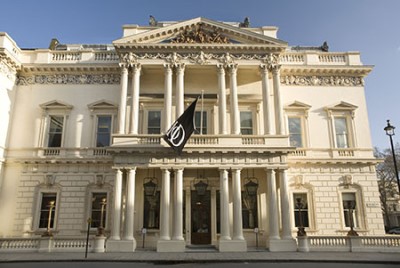
New figures compiled following the emergence of COVID-19 reveal that the post-election bounce in business leaders’ economic confidence has evaporated.
Confidence is now at its lowest since September 2019, with global economic conditions currently cited as one of the biggest obstacles holding back business, after only domestic economic challenges, and followed by uncertainty over our trading status with the EU.
Around one in five IoD members surveyed believe the outbreak represents a high or severe threat to their organisation, with a further 40 percent seeing the risk as moderate. Just over a third said that coronavirus posed little or no direct threat.
In response to the outbreak, one in three directors polled had already cancelled or restricted employee travel in their organisation. The most common actions recorded were enhancing office hygiene (58%), and communicating advice to staff (57%), while over four in ten had encouraged remote working. Just over half of those surveyed had so far reviewed their business continuity plans to manage the impact of COVID-19, as recommended by the Government’s recent action plan.
Tej Parikh, Chief Economist at the Institute of Directors, said:
“The coronavirus outbreak poses a significant challenge for the business community, and it is vital that the Government continues providing timely and accurate guidance.
“The UK’s directors are nothing if not resilient. Businesses large and small are already responding with agility, with many already taking sensible mitigating actions at this stage. However, with the prospect of orders drying up and staff in quarantine, some firms will be looking at a potential cashflow crunch, and confidence in the economy has taken a knock.
“Government must be at the ready to take swift action to help cash-strapped businesses bridge this challenging period. The upcoming Budget also provides an opportune moment to lower business costs and support investment to amplify the post-outbreak recovery.”
As the situation develops the Government should keep all options on the table to help organisations facing potential cashflow challenges, particularly in the context of wider cost and adjustment challenges through the year. Policies to be considered could include:
- Enabling companies under financial distress to spread tax payments (such as for VAT, PAYE, and corporation tax) over a longer timetable, without penalty, for example by expanding HMRC’s ‘Time to Pay’ scheme.
- Measures encouraging banks to show forbearance, and for insurers to pay claims quickly, as well as a business-wide effort to encourage large firms to support small businesses in their supply chain.
- Extending government-guaranteed loans, for example via the British Business Bank’s Enterprise Finance Guarantee scheme, to any firms struggling to access finance.
Wider measures the Government should include in its Budget to lower business costs and lift investment include (full IoD submission here):
- Boosting funding for scale-ups and start-ups by easing restrictions on the Government’s Seed Enterprise Investment Scheme and Enterprise Investment Scheme.
- Providing business with financial assistance to help them access the specialist advice needed to plan for Brexit-induced changes across trade, regulation and immigration policy.
- Cut costs by introducing business rates holidays for firms improving or expanding their premises.
- Reduce the regulatory burden, including by delaying the implementation of IR35 and the Digital Services Tax.